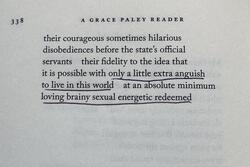Rabba Hurwitz Online
Tell me that you’re surprised.
Since last February when the creators of MAKERS launched their website to spotlight the women who’ve changed the face of America and the world, quite of few of these trailblazers turn out to be Jewish.
Among the MAKERS are Ruth Bader Ginsburg of course and Barbara Walters. There’s Madeleine Albright (a latecomer to be sure but we’ll take her) and Nora Ephron, whose recent passing left the world with a serious irony deficiency.
And now, as of last month, there’s a new Jewish MAKER: Rabba Sara Hurwitz.
Unlike those other four, Rabba Hurwitz is hardly a household name. Few Americans—I’d wager few Jews—have ever heard of the 34-year-old mother of three. Certainly most don’t know from the title “Rabba,” a term coined by Hurwitz’s mentor Rabbi Avi Weiss.
Rabbi Weiss, the author-activist who leads the Hebrew Institute of Riverdale and the rabbinical school Yeshivat Chovevei Torah, has long been an outspoken champion of women in Modern Orthodoxy.
It’s been many years since Rabbi Weiss first saw in Hurwitz a person cut out for rabbinical work, a dramatic departure from traditional Orthodoxy, which leaves such functions to the menfolk. In 2010, he named her “rabba," qualifying her for most of the responsibilities of a rabbi (exceptions include leading prayer services which require a minyan of 10 men). It's fair to say that, while Sara Hurtwitz does sometimes refer to herself as "rabbi," not all Orthodox Jews would consider her one.
The outcry was both fierce and fast. Looking back on that time, in a voice that still bears inflections of her South African birthplace, Rabba Hurwitz told the MAKERS interviewers she recognized in the reaction a “fear of feminism” and a deep concern that this new role “was not within the framework of Jewish law.”
The rabba is equally clear, however, that the joys of being a pioneer far outweigh the frustrations. Visiting Jewish communities, she delights in seeing people “opening themselves up to the possibility of having a woman spiritual leader.” Equally gratifying are the letters from 11-year-old girls “saying how now they have a role model to look to.”
Rabba Hurwitz is quick to acknowledge that she stands “on the shoulders of women who made tremendous inroads, both in the world at large and in the Jewish community.”
So wouldn’t it be easier for her to simply switch to a movement that welcomes women in the pulpit?
The easy way out is not the Rabba’s way in. Orthodoxy is “the best fit for my belief system…. I love my community,” she told MAKERS. “It’s also rather exciting to make space from within the community rather than go to a different community. I don’t think I’d fit in.”
Rather than dwell on the parts of the rabbinical job description that remain off limits to her, Rabba Hurwitz prefers to “focus on what I can do, the impact I can make.” “I think that if I get caught up in the impact of what I’m not allowed to do, I will just be paralyzed,” she says.
Time will tell what exactly that impact will be. But the producers of MAKERS have already put the world on notice. Rabba Sara Hurwitz is a change agent to watch.
The only question that lingers is how well her beloved community will make use of everything she has to offer.





